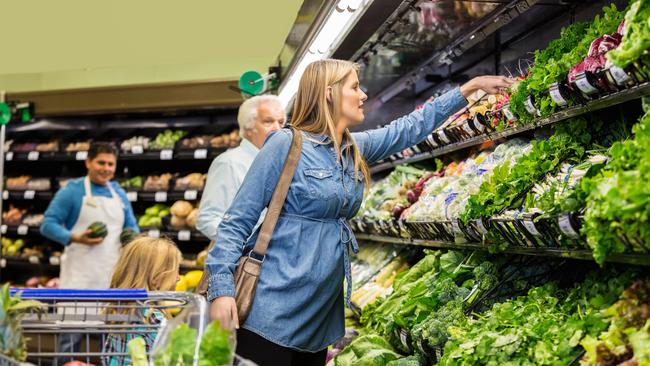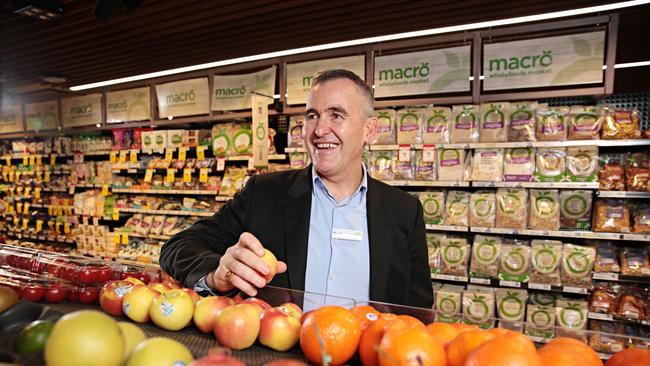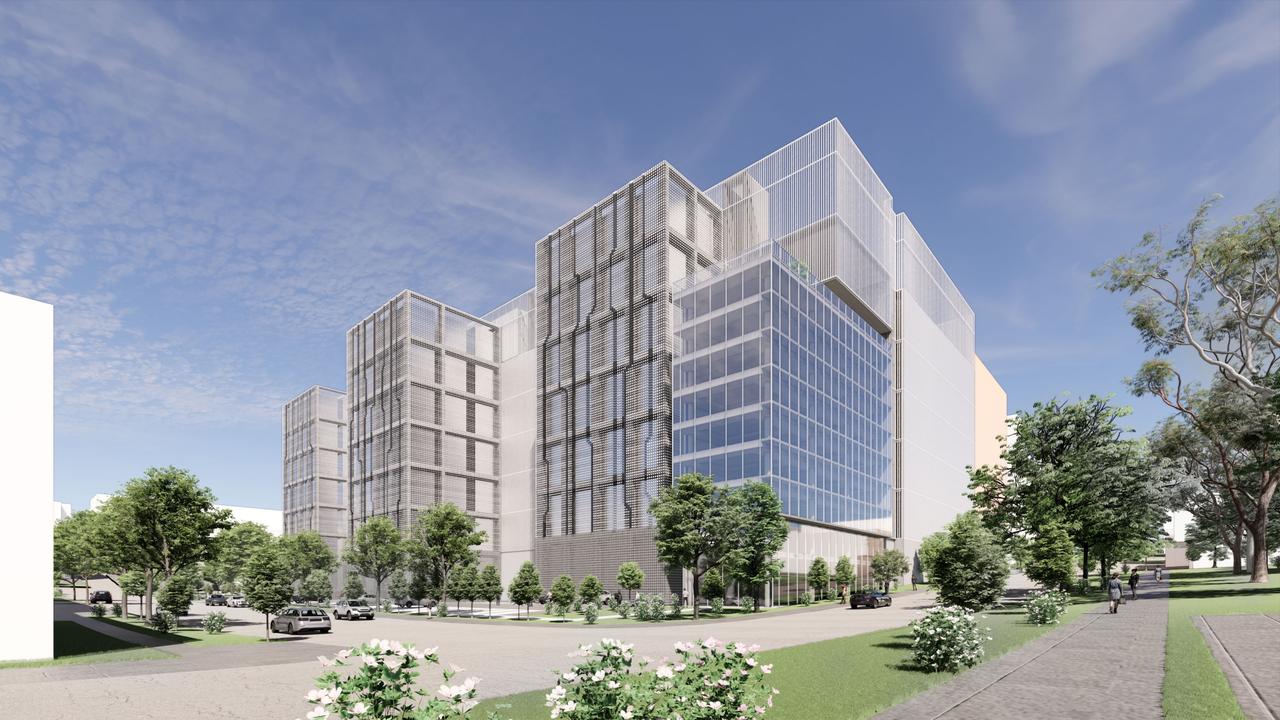Morningstar warns food price inflation is on the march in Australia, up 4pc in March quarter
Groceries have recorded their first meaningful price increase since panic buying and a boom in at-home consumption in the first six months of 2020.

Business
Don't miss out on the headlines from Business. Followed categories will be added to My News.
Groceries have recorded their first meaningful price increase since panic buying and a boom in at-home consumption in the first six months of 2020, with the rising cost of food countering a jump in the cost of doing business for the country’s large supermarkets.
Food prices will rise by a mid-single-digit percentage in the second half of the year after jumping by 4 per cent in the three months to the end of March, analysts say.
A lift in global coal and gas prices and questions about the reliability of Australia’s coal power generation is also creating “an emerging electricity crisis”, Macquarie has warned its clients.
The rapid increase in power prices could create significant uncertainties for AGL Energy, with the investment bank noting that increases of 5-10 per cent “may attract some political attention given the federal government policy of keeping prices down”.
The separate warnings from investment analysts came as the Reserve Bank appeared to suggest inflation and wage growth are accelerating, and flagging that a rise in the cash rate is imminent.
“Inflation has increased,” the RBA said in its monthly statement on Tuesday, although it added that “it remains lower than in many other counties”.
“Higher prices for petrol and other commodities will result in a further lift in inflation over coming quarters,” the bank said.
The inflation warnings come at a critical time for the Coalition and Labor, with a federal election due to be called in coming days. Cost of living issues are expected to be central in the campaign.
In last week’s federal budget, the government forecast consumer price growth of 4.25 per cent this year, easing to 3 per cent in fiscal 2023 and 2.75 per cent in 2024.
Using its Little Shopper Basket research tool, analysts at Morningstar said shelf prices at Coles and Woolworths rose by 4 per cent over the three months from January to March from a year earlier. The period was the first quarter of meaningful food price inflation in Australia since panic buying and a boom in at-home food consumption in the June quarter of 2020 created supply shortages and a significant reduction in promotional activity, Morningstar director Johannes Faul said. In the December quarter, prices were still relatively flat at both Coles and Woolworths.
“But in February 2022, management at Woolworths and Coles reported their shelf prices had already increased by 2 per cent to 3 per cent, and over 3 per cent, respectively, in the March quarter 2022-to-date,” he said.
“Our analysis also suggests price competition between the two majors remained intense, with our Little Shopping Basket only marginally more expensive at Woolworths than Coles during the quarter.”

Mr Faul said he expected the “abnormally high price increases” to bolster supermarket earnings in the near term, “offsetting rising cost of goods sold, higher energy prices, weak population growth, greater out-of-home food consumption, and temporarily bloated supply chain costs because of Covid-related disruptions and demand volatility”.
Mr Faul said the firm expected this tailwind to moderate from fiscal 2023, with food price inflation averaging around 2.5 per cent in the subsequent decade.
“The Australian government expects inflation to moderate over the medium term too. Competition between supermarket chains including Aldi was likely to remain intense, and the quickly expanding and expensive online channels of the majors could add more costs, Mr Faul said.
“A prolonged period of inflation above our base case estimate could potentially drive greater sales and earnings growth, and present an upside risk to our fair value estimates for Woolworths and Coles,” he added.
In February, Woolworths chief executive Brad Banducci said inflation was “alive and real” and he expected it to continue to creep upwards this year.
Similarly, Coles boss Steven Cain said he was seeing inflationary pressure in select categories such as meat and some packaged groceries and that it was beginning to spread through the aisles.
In a note to clients, Morningstar said its researchers had observed a change in shopping behaviour in response to higher prices, particularly in Britain, where food prices increased by 5 per cent in the three months from January to March.
“According to data analytics and consulting group Kantar, shoppers have been favouring private label products over national brands, and discounters over full-service supermarkets,” the note sent on Tuesday reads.
“A key downside risk to our near-term forecast for Woolworths and Coles is changing grocery shopping habits.
“While demand for consumer staples is less price-elastic than for discretionary items, product mix shift away from higher margin premium products, either branded or private label, could weigh on gross profit margins, and consumer migration to discounters could see market shares of full-service supermarkets decline.”
Woolworths closed 23c higher on Tuesday at $37.14. Its share price has risen almost 7 per cent in 12 months.
Coles shares rose 1 per cent to close 18c higher at $18.08. Its shares have risen 13.8 per cent in the last 12 months.
But there are signs of consumer confidence, with new vehicle sales hitting four-year highs in March. The surge came as the ANZ-Roy Morgan consumer confidence index lifted following the budget last week, which unveiled more than $30bn in spending on support measures.
The change in tone of the RBA statement on Tuesday – with the central bank dropping references to the “uncertainty” about a rise in inflation – has led the market to believe rate rises will be brought forward.
“Contrary to its earlier view that it could afford to wait for an acceleration in annual wage inflation to 3 per cent to 3.5 per cent before raising rates, the RBA is now concerned about being behind the curve in case wage and price pressures accelerate too quickly and force a faster pace of interest rate adjustments later,” BetaShares chief economist David Bassanese said.
Originally published as Morningstar warns food price inflation is on the march in Australia, up 4pc in March quarter





